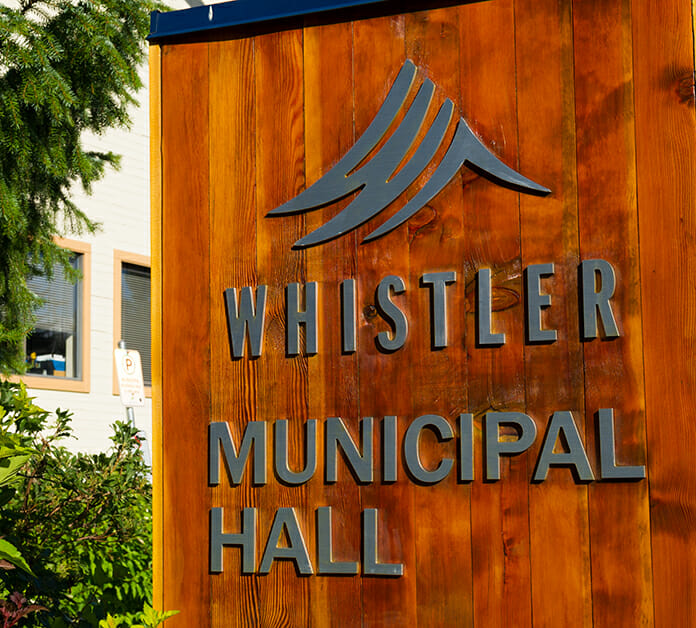Focus areas identified through community input, leadership discussion and staff initiatives
Housing, climate action, community engagement and smart tourism will be the focus of this council term.
The 2023–2026 Resort Municipality of Whistler Strategic Plan was released Tuesday, outlining the four areas as the core needs identified in the election campaign, existing municipal initiatives and strategic planning discussions held in December.
“These are the areas we know are vital to our community and this plan takes a thoughtful, simple approach to isolating what’s really important. It reflects the work we did as Council and staff in our strategic planning sessions well, and will ensure this term has impact, today and for many years to come,” said Mayor Jack Crompton.
Drawing on recommendations from the 2020 Community Engagement Review, and a summertime rethink of the Resort Municipality of Whistler’s corporate structure, the plan marks a major shift toward community input with the creation of a new Community Engagement and Cultural Services division.
A new GM will be tasked with overseeing this division, improving information sharing on local government process and decisions, and reviewing engagement practices to increase the amount and effectiveness.
“Our community should guide our work and their feedback should have impact at every level of our organization,” said Virginia Cullen, Chief Administrative Officer. “By creating this new division, we’re prioritizing the community’s voice and ensuring input is at the core of everything we do.”
The primary request residents shared heading into this council term is continuing to prioritize housing, and it will be heavily weighted in this council term. Building out Phase II in Cheakamus Crossing is noted as a key initiative in this area, as is creating a long-term housing strategy with community partners, implementing a housing action plan and continuing to support private sector employee housing initiative projects.
An important concern voiced by Whistler residents, climate action, is pinpointed as another core strategic driver with a directive to allocate resources toward the Big Moves Climate Action Implementation Plan. Through investment in electric vehicle infrastructure, Big Move 1: Move beyond the car will be highly weighted, along with growing active transportation and investment in transit. Climate mitigation efforts will focus on wildfire mitigation, emergency planning and accelerating the pace of wildfire protection activities.
Finally, work will be done to preserve and protect Whistler’s unique culture, natural assets and infrastructure by concentrating on smart tourism. This will involve refining the understanding of capacity constraints to manage demand through the newly introduced Balance Model tool. Municipal staff will be tasked with researching tourism advancements in other leading destinations, designing municipal assets to encourage dispersion of visitors to minimize environmental impacts and providing opportunities for visitors to participate in, and contribute to, Whistler’s culture.
Discussion on the strategic priorities was informed by the Community Monitoring Program, which includes nearly 90 indicators of success, updated annually. In addition, the Balance Model was used to understand the implications of the community’s population and visitor growth and the Whistler Sessions scenarios were used to expand thinking about potential future conditions. All initiatives were guided by Whistler’s Shared Community Vision, as articulated in the Whistler Official Community Plan.
The Strategic Plan provides the framework for the more detailed RMOW Corporate Plan and Annual Report, published annually in June.

